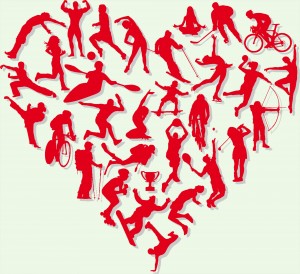Asthma requires a great deal of patience. It is not an exact science.
The learning curve is steep and parents have to learn to research on their own in order to educate themselves on how to best handle their child’s illness. Working with medical professionals is crucial but parents must also learn to advocate for their children as they battle a chronic illness that has many variables.
I was diagnosed with asthma a few years before my son. The only good thing about having asthma myself was that I was ahead of the game, knowledge-wise. I knew what we were dealing with, I knew how it felt when he couldn’t catch a good breath, and I knew how important it was for him to take his meds every day. I always had an emergency inhaler in my bag for myself, so I always had it for him, too.
However, his asthma and my asthma were not the same. I had a lot left to learn. After allergy testing, we discovered at the age of 12 that he had food allergies. Suddenly, we were thrust into the world of wheat-free, tree nut-free, gluten-free…we went cold turkey on all of his allergens (wheat, tree nuts, beef, and lettuce), as I was terrified that food was making him sicker. We even tried dairy free, since dairy causes inflammation. It took hours at the grocery store just to find food he could eat. I was having to cook everything, since we were very limited on restaurants and prepared foods that were both gluten-free and tree nut-free.
We did what they told us to do. We even ate super disgusting gluten-free, dairy-free pizza. Only once. We tried soy milk and rice milk, and soy cheese, which is truly the most horrible concoction. We spent an obscene amount of money, because these specialty foods cost an arm and a leg, which is honestly adding insult to injury. Not only are you sick, but you have to destroy your budget, too! But when they tell you to do this, you do it, because it’s your kid, and even though he had never had an obvious reaction to any of these foods in 12 years, you want your kid to be well and you will do whatever it takes.
We also did allergy shots. He got a rash soon after, and the doctor was adamant that it wasn’t the shots. It didn’t go away, and on my own, I took him off the shots and the rash went away. I found a new doctor. I quit blindly following advice.
Around this time, I went to an allergist for my asthma. He enlightened me on allergy testing and how there are different methods (I had the intra-dermal kind after the skin test didn’t reveal anything. My son only had the skin test.) He mentioned that it was rare for a 12 year old to have food allergies, and that sometimes environmental allergies can present as food allergies, i.e. tree allergy = tree nut allergy, grass allergy = wheat allergy. I felt so defeated and so furious. All of that time, energy, and money I spent on his diet and the testing, when it may have been for nothing. He suggested I have my son tested again. Since we were still paying for the old test, as well as my current test, I said no. It cost me $800 out-of-pocket to be tested. And we have “good insurance.” He would have to wait.
I felt like an idiot, or worse, like I’d been had. I also felt very confused. I have a Master’s degree but couldn’t weed through all of the conflicting information. I had read books upon books, articles upon articles, joined Facebook groups…but because asthma and allergies are so inexact, I couldn’t say for sure that my previous doctor had done anything wrong, but I certainly suspect that they weren’t great.
Instead of racking up more medical bills, I found a new doctor who believed in taking traditional medicines along with alternative medicines (Epsom salt baths, supplements, Probiotics.) I decided to change our diet to more healthy, whole foods, less processed, more organic, less GMO, and more fruits and veggies. I cooked more and ate out less. We do still cut down on gluten and dairy during football season when my son’s allergies are at their worst, but otherwise, he eats a mostly (he is a teenager) healthy diet without going to the extreme.
Live and learn. Try and try again. If it ain’t broke, don’t fix it. So many trite expressions come to mind in regards to our roller coaster ride with asthma. I carry the epi-pen we got during allergy shots because I am still paranoid that he will have some reaction someday. It’s probably expired but it gives me an irrational sense of security. I also carry Benadryl in case he has a reaction. In the back of my mind, I still worry about those tests from 2 years ago. For now, we are doing our best and what makes sense to us.
This is just our experience. Food allergies are real and horribly dangerous and life-threatening to many children. We are fortunate that we have not had scary reactions to foods. My heart goes out to families that have to deal with real food allergies. But I’ve wondered how many people have been diagnosed with food allergies but have never had reactions. I wonder how other families handled this situation, and hopefully, they did better than we did.
My kid says sometimes, “remember when Mom made us eat all that weird food and we had that nasty pizza?” Like it was a “kooky phase” Mom went through, like when she was into knitting, or when she wore ugly Christmas sweaters back in the day. Ugh, parenting a kid battling asthma is never boring and often thankless but with patience, perseverance, education, and advocacy, we will get through it.






